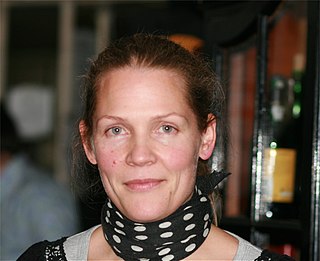A Quote by Bertrand Russell
It appeared that after first contemplating a book on some subject, and after giving serious preliminary attention to it, I needed a period of subconscious incubation which could not be hurried and was if anything impeded by deliberate thinking.... Having, by a time of very intense concentration, planted the problem in my subconsciousness, it would germinate underground until, suddenly, the solution emerged with a blinding clarity, so that it only remained to write down what happened as if in a revelation.
Quote Topics
After
Anything
Appeared
Attention
Blinding
Book
Clarity
Concentration
Contemplating
Could
Deliberate
Down
Emerged
First
Giving
Happened
Having
Incubation
Intense
Needed
Only
Period
Planted
Preliminary
Problem
Remained
Revelation
Serious
Solution
Some
Subconscious
Subject
Suddenly
Thinking
Time
Underground
Until
Very
Which
Would
Write
Related Quotes
The creative act always requires a stepping back. It's called the incubation period. The incubation period - one of the four phases of creativity - is when you're not consciously thinking of a problem, and you're letting it marinate. So this is why you hear time and again, people saying they had that "Eureka" moment in the bath, like Archimedes, or in the shower, or while going for a walk or in a coffeehouse.
I have found, for example, that if I have to write upon sum rather difficult topic, the best plan is to think about it with very great intensity-the greatest intensity of which I am capable-for a few hours or days, and at the end of that time give orders, so to speak (to my subconscious mind) that the work is to proceed underground. After some months I return consciously to the topic and find that the work has been done.
Well, first you have to love writing. A lot of authors love having written. But I enjoy the actual writing. Beside that, I think the main reason I can be so prolific is the huge amount of planning I do before I start to write. I do a very complete, chapter-by-chapter outline of every book I write. When I sit down to write, I already know everything that's going to happen in the book. This means I've done all the important thinking, and I can relax and enjoy the writing. I could never write so many books if I didn't outline them first.
I didn't know enough as a writer to understand why I needed to do this, but I understood in a very gut way that I could not entertain those thoughts of pleasing people and write this book - that it would be a very different book. Without really sort of investigating that instinct, which I'm glad for, I just made a conscious decision to put blinders on and not think about anything and put it all in. And I did. I put everything in. I had to look at the whole picture to see what I needed.
There isn't a single day I don't do some writing -- if you don't, you won't have a book. When you're self-employed it is very easy to burn away your time instead -- answering e-mails, surfing the Internet, or hanging out with friends. You really must have the discipline to sit down and write every day. Most of what I am writing is living in the back of my head or in my subconscious. I find if I write every day, my subconscious will do the job for me.
Let me just say you could end this violence within a very short period of time, have a complete ceasefire - which Iran could control, which Russia could control, which Syria could control, and which we and our coalition friends could control - if one man would merely make it known to the world that he doesn't have to be part of the long-term future; he'll help manage Syria out of this mess and then go off into the sunset, as most people do after a period of public life. If he were to do that, then you could stop the violence and quickly move to management.
I'm pretty obsessive-compulsive and I'm very fast. I tend to not write for a long period of time until I can't not write, and then I write first drafts in gallops. I won't eat right. I forget to do my laundry. I have a dog now, and I have to remember to walk him. When I write, that takes over and I can't do anything else. There's something exciting about that free fall, but then my life gets really screwed up. I've lost lots of relationships because of my having to ignore everything.


































